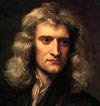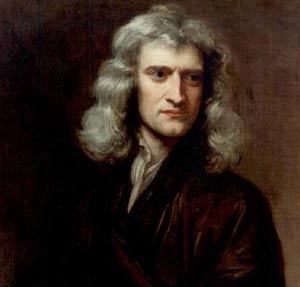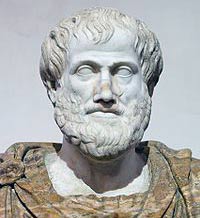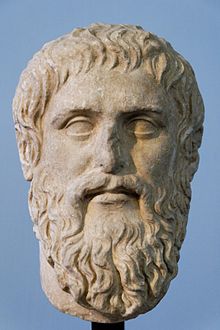Friday, October 13, 2017
Sunday, October 8, 2017
Biography Sir Isaac Newton
Biography Sir Isaac Newton
 Sir Issac Newton (1643- 1726) was an English mathematician, physicist and scientist. He is widely regarded as one of the most influential scientists of all time, developing new laws of mechanics, gravity and laws of motion. His work Principia Mathematica laid the framework for the Scientific Revolution of the Seventeenth Century. A great polymath, Newton’s investigations also included areas of optics, religion and alchemy.
Sir Issac Newton (1643- 1726) was an English mathematician, physicist and scientist. He is widely regarded as one of the most influential scientists of all time, developing new laws of mechanics, gravity and laws of motion. His work Principia Mathematica laid the framework for the Scientific Revolution of the Seventeenth Century. A great polymath, Newton’s investigations also included areas of optics, religion and alchemy.Early Life of Newton
Sir Isaac Newton was born on Christmas Day, in 1643, to a relatively poor farming family. His father died three months before he was born. His mother later remarried, but her second husband did not get on with Isaac; leading to friction between Isaac and his parents. The young Isaac attended school at King’s School, Grantham in Lincolnshire (where his signature is still inscribed in the walls.) Isaac was one of the top students, but before completing his studies his mother withdrew him from school, so Isaac could work as a farmer. It was only through the intervention of the headmaster that Isaac was able to return to finish his studies; he passed his final exams with very good results, and was able to go to Trinity College, Cambridge.
Newton at Cambridge
 At Cambridge he was able to pursue his interests in mathematics, science and physics. At the time the prevailing education was based on Aristotle, but Isaac was more interested in modern mathematicians such as Rene Descartes. Isaac Newton had a prodigious capacity to consider mathematical problems, and then focus on them until he had solved the mystery behind them. His one pointed nature led him to, at times, be detached from the world. For example, he had little time for women. An early teenage romance came to nothing, and he remained single throughout his life.
At Cambridge he was able to pursue his interests in mathematics, science and physics. At the time the prevailing education was based on Aristotle, but Isaac was more interested in modern mathematicians such as Rene Descartes. Isaac Newton had a prodigious capacity to consider mathematical problems, and then focus on them until he had solved the mystery behind them. His one pointed nature led him to, at times, be detached from the world. For example, he had little time for women. An early teenage romance came to nothing, and he remained single throughout his life.
Sir Isaac Newton, has been referred to as one of the greatest geniuses of history. His mathematical and scientific achievements give credence to such a view. His many accomplishments in the field of science include:
Developing a theory of calculus. Unfortunately, at the same time as Newton, calculus was being developed by Leibinz. When Leibinz published his results, there was a bitter feud between the two men, with Newton claiming plagiarism. This bitter feud lasted until Leibinz death in 1713, it also extended between British mathematicians and the continent.
Mathematical achievements of Newton
- Generalized binomial theorem
- Newton’s identities,
- Newton’s method,
- classified cubic plane curves (polynomials of degree three in two variables),
- Substantial contributions to the theory of finite differences,
- Use of fractional indices
- Used geometry to derive solutions to Diophantine equations.
- Used power series with confidence and to revert power series.
- Discovered a new formula for pi.
Scientific Aachievements of Newton
- Optics – Newton made great advancements into the study of optics. In particular he developed the spectrum by splitting white light through a prism.
- Telescope – Made significant improvements to the development of the telescope. However, when his ideas were criticised by Hooke, Newton withdrew from the public debate. He developed an antagonistic and hostile attitude to Hooke, throughout his life.
- Mechanics and Gravitation. In his famous book Principa Mathematica. Newton explained the three laws of motion that laid the framework for modern physics.
This involved explaining planetary movements.
Newton hit on the head with an Apple
The most popular anecdote about Sir Isaac Newton is the story of how the theory of gravitation came to him, after being hit on the head with a falling apple. In reality, Newton and his friends may have exaggerated this story. Nevertheless, it is quite likely that seeing apples fall from trees may have influenced his theories of gravity.
Newton’s Religious Beliefs
As well as being a scientist, Newton actually spent more time investigating religious issues. He read the Bible daily, believing it to be the word of God. Nevertheless, he was not satisfied with the Christian interpretations of the Bible. For example, he rejected the philosophy of the Holy Trinity; his beliefs were closer to the Christian beliefs in Arainism (basically there was a difference between Jesus Christ and God)
Newton – Bible Code
Newton was fascinated with the early Church and also the last chapter of the Bible Revelations. He spent many hours poring over the Bible, trying to find the secret Bible Code. He was rumoured to be a Rosicrucian. The religious beliefs that Newton held could have caused serious embarrassment at the time. Because of this he kept his views hidden, almost to the point of obsession. This desire for secrecy seemed to be part of his nature. It was only on his death that his papers were opened up. The bishop who first opened Newton’s box, actually found them too shocking for public release, therefore, they were kept closed for many more years.
Newton and Alchemy
Newton was also interested in alchemy. He experimented on many objects, using a lot of Mercury. Very high levels of mercury in his blood stream may have contributed to his early death and irregularities in later life.
Newton was made member of the Royal Society in 1703. He was also given the job of Master of Mint in 1717. He took this job seriously and unofficially was responsible for moving England from the silver standard to the gold standard.
Newton was an extraordinary polymath; the universe simply fascinated him. He sought to discover the hidden and outer mysteries of life. With his sharp intellect and powers of concentration, he was able to contribute to tremendous developments in many areas of science. He was a unique individual. John Maynard Keynes, a twentieth century genius, said of Newton:
“I do not think that any one who has pored over the contents of that box which he packed up when he finally left Cambridge in 1696 and which, though partly dispersed, have come down to us, can see him like that. Newton was not the first of the age of reason. He was the last of the magicians, the last of the Babylonians and Sumerians, the last great mind which looked out on the visible and intellectual world with the same eyes as those who began to build our intellectual inheritance rather less than 10,000 years ago. Isaac Newton, a posthumous child born with no father on Christmas Day, 1642, was the last wonderchild to whom the Magi could do sincere and appropriate homage.”
Aristotle Biography
Aristotle Biography
Aristotle (384BC – 322BC) Greek philosopher, natural scientist and polymath – who made extensive studies into the world around us. Aristotle’s investigations and studies developed the foundations for Western intellectual studies. His writings formed the basis for much knowledge of the first Millennium.
“Time crumbles things; everything grows old under the power of Time and is forgotten through the lapse of Time.”
– Aristotle (Physics)
 Living in the same time period as Plato and Alexander the Great, Aristotle helped lay the foundations for western civilisation through his wide range of intellectual and scientific studies.
Living in the same time period as Plato and Alexander the Great, Aristotle helped lay the foundations for western civilisation through his wide range of intellectual and scientific studies.
Aristotle was one of the great polymaths of his time. He studied under Plato and therefore learnt much about the great philosophic traditions of Socrates. But, Aristotle was more than just a good student; he had an independent mind and was able to question many different things and sought to resolve difficult questions and previously unsolvable problems. He made studies in botany, physics, philosophy, logic, and was well known for being a powerful lecturer and debater. He was also regarded as a kindly man, compassionate to others.
In the field of physics, Aristotle’s ideas influenced much of the medieval period and lasted into the European Renaissance. His ideas were later replaced by the physics of Isaac Newton.
Aristotle believed in the power of reason to illuminate the problems of man. He believed that man had the capacity for enlightenment through self-inquiry and study. He believed that human goodness derived from rational thought. Aristotle was also a playwright and he described how the weakness of man – pride, anger, jealousy, could lead to his downfall.
“Piety requires us to honor truth above our friends.”
– Aristotle (Nicomachean Ethics)
Aristotle was also the teacher of the future Macedonian King – Alexander the Great. Aristotle taught the future king, political philosophy, history and ethics. Alexander the Great was to ignore much of Aristotle’s teachings such as the desirability of oligarchic leadership, but, his education by Aristotle must have left an abiding impression on the young prince.
“If liberty and equality, as is thought by some, are chiefly to be found in democracy, they will be best attained when all persons alike share in the government to the utmost.”
– Aristotle (Politics)
Aristotle’s work Politics is an attempt at a practical philosophy to allow justice and freedom. He also saw politics as a method of ensuring man had the capacity to live harmoniously and allow him to pursue noble ideas.
“The political partnership must be regarded, therefore, as being for the sake of noble actions, not for the sake of living together.”
In addition to the above interests, Aristotle pioneered the study of zoology, logic and helped in the development of medicine, optics, and ethics.
“One swallow does not make a summer, nor does one day; and so too one day, or a short time, does not make a man blessed and happy. ”
– Aristotle (Nicomachean Ethics)
Aristotle was one of the few classical philosophers who strongly influenced later Christian writers such as Thomas Aquinas.
Plato Biography
Plato Biography
 Plato (423 BC – 348 BC) was a Classical Greek philosopher, mathematician, student of Socrates, writer of philosophical dialogues, and founder of the Academy in Athens, the first institution of higher learning in the Western world. Along with his mentor, Socrates, and his student, Aristotle, Plato helped to lay the foundations of Western philosophy and science. Plato influenced a whole range of subjects from philosophy to maths, logic and ethics.
Plato (423 BC – 348 BC) was a Classical Greek philosopher, mathematician, student of Socrates, writer of philosophical dialogues, and founder of the Academy in Athens, the first institution of higher learning in the Western world. Along with his mentor, Socrates, and his student, Aristotle, Plato helped to lay the foundations of Western philosophy and science. Plato influenced a whole range of subjects from philosophy to maths, logic and ethics.
The early life of Plato is only partially recorded, but he was born in an aristocratic family in Athens. This enabled him to gain a good education, where he soon impressed those around him with his speed of learning and clarity of thought.
Relationship with Socrates
A key element of Plato’s writings is his frequent references to Socrates. Socrates appears in most of Plato’s writings, and it is clear that Socrates and his Socratic dialogues had a big influence on the young Plato.
It is only through Plato, that we get a clear idea of Socrates’ philosophy and way of life. In Apology of Socrates, Plato writes an account of Socrates defending himself in a trial which ultimately led to his own death.
However, Plato was not merely transcribing the words of Socrates; he was also using his own interpretations and thought to add to that which he learned from him.
Plato’s Central Doctrines
Plato wrote on a whole range of topics, but it is his ethics and general philosophy which seemed to be his biggest interest. Plato wrote that he saw a distinction between the body (corporeal world) and the soul. He also saw a distinction between the imperfection of the material world and the highest ideals which transcend material imperfections. Plato felt that someone of a ‘philosophic mind’ could differentiate between outward limitations and the highest ideals of beauty, truth, unity and justice. It is a philosophy which hints at the limitations of the material and mental world and encourages an aspiration to higher ideals.
He also mentions that the life we live is based on previous choices in either this incarnation of the soul or previous incarnations. Plato’s philosophy was also heavily influenced by Pythagoras, especially his religious views on transmigration.
In Politics, Plato developed the idea of a ‘Philosopher King’ someone who would be a wisdom lover and develop the necessary qualities to rule over his people with wisdom and justice. He makes the analogy to a ship’s captain or doctor. Someone who knows best what his patient needs.
“Until philosophers rule as kings or those who are now called kings and leading men genuinely and adequately philosophise, that is, until political power and philosophy entirely coincide, while the many natures who at present pursue either one exclusively are forcibly prevented from doing so, cities will have no rest from evils,… nor, I think, will the human race.” (Republic 473c-d)
This made Plato a critic of the current Athenian system of democracy.
Style of Teaching
Plato doesn’t write treatises, but writes in an indirect way, encouraging the reader to ask questions and think for himself. There is also signs of development and changes in thought, though some of this is due to uncertainty over whether letters ascribed to Plato, were actually written by him. But, like his teacher Socrates, Plato is often happy to play role of observer rather than a preacher.
Plato Quotes
“Be kind, for everyone you meet is fighting a harder battle.”
― Plato
“Every heart sings a song, incomplete, until another heart whispers back. Those who wish to sing always find a song. At the touch of a lover, everyone becomes a poet.”
― Plato
“We can easily forgive a child who is afraid of the dark; the real tragedy of life is when men are afraid of the light.”
― Plato
“One of the penalties of refusing to participate in politics is that you end up being governed by your inferiors.”
― Plato
“I am the wisest man alive, for I know one thing, and that is that I know nothing.”
― Plato, The Republic
“There are three classes of men; lovers of wisdom, lovers of honor, and lovers of gain.”
― Plato






